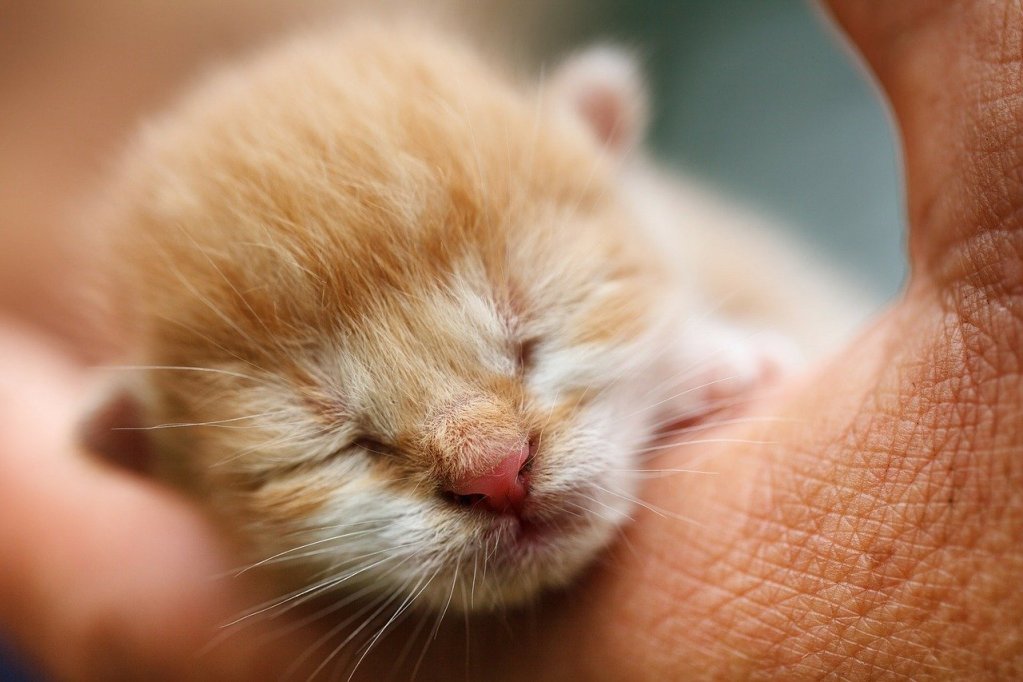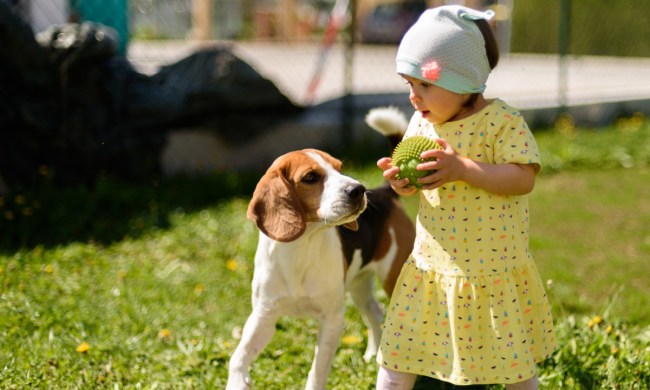Having a litter of kittens in your home can be an exciting time, and you’ll have the privilege of watching the kittens grow up. However, it’s important to realize that kittens can get very sick very quickly, and slowed growth or missed milestones can indicate health problems that need veterinary attention right away. If you’re expecting kittens in your home, it’s a great idea to learn about their growth stages and what to expect in the first few weeks as well as throughout the entire first year of a kitten’s life. The more you know about what’s normal, the better the chance you’ll spot something wrong right away and be able to get the kitten help. A kitten growth chart can help you determine whether they’re on track.

Kitten growth by week
According to Pet MD, your kitten undergoes rapid growth during the first eight weeks of his life. As a newborn, your kitten will weigh between 1.8 and 5.3 ounces, his eyes will be closed, and his ears will be folded. By the time your kitten is one week old, he’ll weigh between 5.3 and 8.8 ounces and his ears will be gradually opening. At two weeks old, your kitten’s eyes will be open, but he’ll have limited vision. He’ll weigh between 8.8 and 12.3 ounces.
By three weeks old, your kitten will have ears that are starting to point upwards. His eyes will be blue, but his vision will be slowly getting better. He’ll weigh between 12.3 and 15.9 ounces. At week four, your kitten’s vision and hearing will both be much better, and his teeth will start coming through his gums. He’ll weigh 15.9 ounces to 1.2 pounds. By week five, your kitten’s ears will be growing and will be pointed. His teeth will be developing and he’ll be running around and playing. He should weigh between 1.2 and 1.4 pounds.
Once your kitten reaches week six, his teeth will be in their last development stages and he’ll have fully developed vision and hearing. He’ll weigh 1.4 to 1.7 pounds. At week seven, your kitten will have all of his baby teeth and his eyes will be changing into their adult color. He’ll be full of energy and will be running and climbing. Your kitten will weigh 1.7 to 1.9 pounds.
By eight weeks old, your kitten will have all of his baby teeth and his eyes will be their adult color. He’ll be independent and full of energy, and will weigh between 1.9 and 2.1 pounds.
Normal kitten growth and development
While the weekly kitten development timeline provides some guidelines about the progress your kitten should be making, keep in mind that that timeline can vary from kitten to kitten. According to VCA Hospitals, your kitten will reach adulthood once he’s between 10 and 12 months old, but his specific growth rate will depend on his breed. Other factors, like his genetics, nutrition, and even his environment, can also affect how quickly he grows.
Your kitten needs appropriate food that delivers enough nutrients to reach his full growth potential. That nutrition also influences your cat’s immune system, so feeding your kitten well can help to keep him healthy.
Kitten development in the first year occurs at varying paces. While kittens grow quickly when they’re younger, that growth slows down as they are near one year old. Once your kitten is 30 weeks old, he should reach about 80% of his adult size and weight. Once he’s 40 weeks old, he should be at his full size.

Tracking your kitten’s progress
You can track your kitten’s growth by using a kitten growth chart, like the one provided by Ask the Cat Doctor. The chart offers guidelines for the progress that you should see in your kitten’s weight gain each week. Your kitten’s weight provides key insight into his health, and if your kitten stops gaining weight, it can indicate a health issue that needs prompt attention.
Keep in mind that kittens can get sick very rapidly, so any change in your kitten’s eating habits or weight gain is cause for concern. If your kitten’s weight gain differs from the growth chart or slows, it may indicate that you’re not feeding him enough formula, if you’re hand-feeding him. If your kitten is nursing from his mother, a lack of weight gain in the kitten could indicate that the mother cat has a health issue. If you have any concerns about your kitten’s well-being, consult with your vet right away.
Be prepared
Successfully raising a litter of kittens can be a lot of work, especially if any of the kittens have health issues or need to be fed by hand. Connect with your vet ahead of time to ensure that the mother cat receives the proper care and nutrition leading up to her pregnancy. Your vet will also be key in guiding you through the kittens’ first few weeks of life. If you have questions before or after your kittens’ birth, be sure to talk about any concerns with your vet. Preparing yourself as much as possible means you’ll be able to give the kittens the quality care they need.


